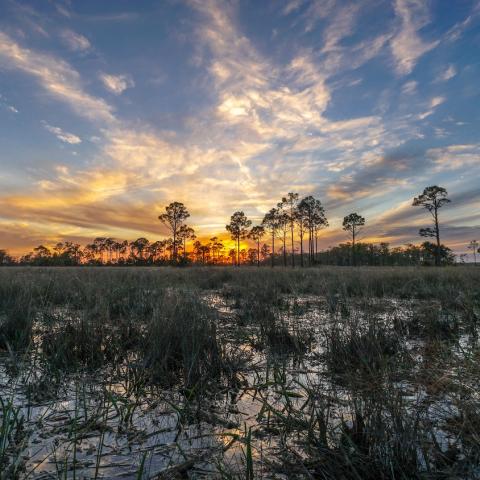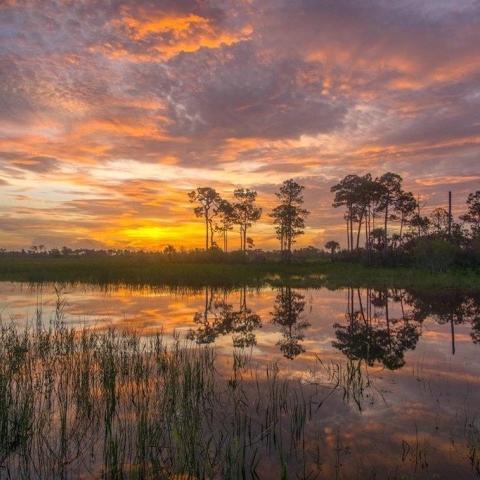
A Mississippi oil company has dropped plans to explore for oil just north of Big Cypress National Preserve in Florida/NPS file
A Mississippi-based oil company has dropped plans to drill for oil just outside Big Cypress National Preserve in Florida, a move heralded by the South Florida Wildlands Association that had challenged the drilling permit.
Tocala, LLC, cited no reason for abandoning the lease in May when it asked the state to withdraw the permit and release the bond the company had posted. The permit was for an area involving a mix of private and state lands, including Dinner Island Ranch Wildlife Management Area, adjacent to the northern boundary of the preserve. Endangered Florida panthers that make Big Cypress home use this area as well.
"While not getting as much attention as some of the other high-profile oil operations in the Greater Everglades, Tocala's project was one that definitely kept us up at night," South Florida Wildlands Executive Director Matthew Schwartz said Thursday.
"The area is just north of the Bear Island section of the Big Cypress and is a known hotspot for terrestrial wildlife in the Everglades. State Road 29, which runs north-south through the lease area, is already ground zero for panther roadkill in Florida," he added. "It was hard to imagine what thousands of explosions going off - plus lots of off-road traffic in an area that generally has no public access - would have done to the wildlife in the vicinity. Nothing on this scale had ever been done before in South Florida. We were very happy to learn that Tocala had pulled out before any of their operations got started."
According to the association, the uplands in the lease area are probably the most important habitat in the state for the Florida panther.
In 2014 SFWA had filed a legal petition against the Florida Department of Environmental Protection challenging the permit issued to Tocala. That permit covered a geophysical survey of 161 square miles and allowed for the drilling of up to 8,800 shot holes along with the distribution of approximately 23,500 “geophones.”
"Pentolite" explosives were to be loaded into the shot holes at depths of up to 150 feet and exploded, according to the association. The seismic geophones would then pick up the vibrations and create a 3D picture of the underlying geology with a focus on potential oil deposits.
The mineral rights to search and drill in the preserve were leased from Collier Resources of Naples, Florida, which owns much of the mineral rights underlying Big Cypress.
"Hopefully, this is a sign that oil exploration is no longer profitable in the Everglades," Alison Kelly, a senior attorney at the Natural Resources Defense Council, which has been working to stop oil exploration in Big Cypress by Burnett Oil Co., said of Tocala's decision.
Burnett has been exploring a large section of Big Cypress in search of economically recoverable oil reserves. So far it has done seismic testing in one of four areas that it has received permission to search, but has not publicly reported its findings.
"No one at the preserve has heard anything about Burnett plans to resume seismic testing," Kelly said Thursday.



 Support Essential Coverage of Essential Places
Support Essential Coverage of Essential Places







Add comment